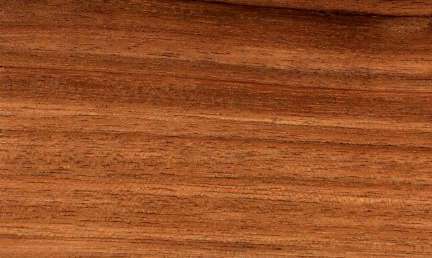
Anzem (Copaifera religiosa)
Family: Leguminosae
Common names: Anzem, Bengi, N'tene
Distributed in: Cameroon, Central African Republic, Congo, Gabon, Zaire (Africa)
Distribution overview: Likely grows from Panama southward to Argentina and Paraguay.
Common uses: Balusters, Bent Parts, Boxes and crates, Building construction, Building materials, Cabinetmaking, Casks, Chairs, Chests, Construction, Decorative plywood, Decorative veneer, Desks, Dining-room furniture, Domestic flooring, Drawer sides, Excelsior, Figured veneer, Fine furniture, Flooring, Furniture , Furniture components, Furniture squares or stock, Hardboards, Hatracks, Interior construction, Interior trim, Joinery, Kitchen cabinets, Light construction, Living-room suites, Millwork, Moldings, Novelties, Office furniture, Packing cases, Parquet flooring, Particleboard, Plywood, Pulp/Paper products, Pulpwood, Vehicle parts
Product sources: The ITTO reports that timber is produced from this species and exported in negligible quantities.
Environment profile: Generally widespread, secure, and abundant within most of its range
Tree size: Trunk diameter is 100-150 cm
Colors: the heart isRed, Yellowand the sapwoodWhite to yellow, Yellow.The grain isStraight, the textureFine to mediumand the lusterMedium
Natural durability: Susceptible to insect attack, Susceptible to termite attack
Kiln Drying Rate: Naturally dries slowly
Drying Defects: Slight surface checking, Slight twist/warp
Ease of Drying: Slowly
Blunting Effect: Slight
Boring: Fairly easy to very easy
Cutting Resistance: Easy to saw
Gluing: Glues well
Mortising: Fair to Good
Nailing: Fair to Good , Fairly Easy to Very Easy
Planing: Reduction of cutting angle recommended
Resistance to Impregnation: Sapwood is moderately resistant
Response to hand tools: Easy to Work
Routing recessing: Fair to Good Results
Turning: Easy to turn
Polishing: Very Good to Excellent; Staining: Very Good to Excellent;
- Numerical data Metric
- Numerical data English
- Strength properties
- References
 |
 |
 |
 |
| Item |
Green |
Dry |
Metric |
| Specific Gravity |
|
|
|
| Density |
|
592 |
kg/m3 |
| Bending Strength |
516 |
978 |
kg/cm2 |
| Crushing Strength |
258 |
461 |
kg/cm2 |
| Hardness |
|
|
kg |
| Impact Strength |
|
|
cm |
| Shearing Strength |
|
117 |
kg/cm2 |
| Stiffness |
90 |
103 |
1000 kg/cm2 |
| Tangential Shrinkage |
|
|
% |
| Radial Shrinkage |
4 |
|
% |
| Weight |
753 |
544 |
kg/m3 |
| Maximum Load |
|
|
cm-kg/cm3 |
| Toughness |
|
|
cm-kg |
| Static Bending |
|
|
kg/cm2 |
|
 |  |  |  | | Item | Green | Dry | English | | Bending Strength | 7350 | 13916 | psi | | Density | | 37 | lbs/ft3 | | Maximum Crushing Strength | 3675 | 6566 | psi | | Shearing Strength | | 1666 | psi | | Stiffness | 1294 | 1470 | 1000 psi | | Weight | 47 | 34 | lbs/ft3 | | Radial Shrinkage | 4 | | % | | Tangential Shrinkage | 4 | | % | |
Heavy
Density = high
Compression strength (parallel to grain) = high
Bending strength (MOR) = high
Bolza, E., Keating, W.G.,1972,African Timbers - the Properties, Uses and Characteristics of 700 Species,C.S.I.R.O. Div. of Building ResearchChudnoff, M.,1984,Tropical Timbers of the World,U.S.A. Department of Agriculture, Forest Service, Forest Products,Laboratory, Madison.ITTO.1986.Tropical Timber Atlas, Volume 1 - Africa.International Tropical Timber Organization (ITTO) and Centre Technique Forestier Tropical (CTFT, 45bis, Avenue de la Belle Gabrielle, Nogent-sur-Marne Cedex, France.WCMC.1992.Conservation Status Listing - Trees and Timbers of the World.World Conservation Monitoring Center - Plants Programme, Cambridge, CB3 ODL, United Kingdom.
|








